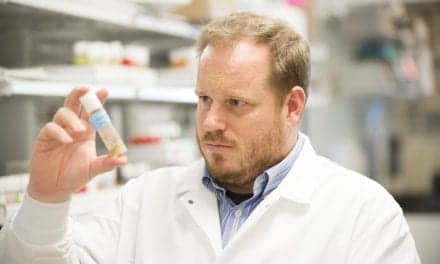March 9, 2007
In a study released March 8, researchers report finding a possible biological underpinning for the marked variation in individual response to sleep deprivation.
Scientists long have observed that some people seem to cope with lack of sleep better than others, and this study indicates that a genetic difference in a so-called clock gene, PERIOD3, may be the reason why. The findings appear online this week in the journal Current Biology, published by Cell Press.
There are two variants of the PERIOD3 gene in humans, encoding either long or short versions of the corresponding protein. Each individual possesses two copies of the gene, either of which might be the long or short form. Previous studies indicated that the different forms of the gene influenced individuals’ daily activity levels making some people “morning larks” who preferred to wake up early and others “night owls” who preferred to stay up late and sleep in.
The multidisciplinary research team of Antoine Viola, Derk-Jan Dijk, and colleagues at the University of Surrey’s Sleep Research Center, compared how individuals possessing only the longer gene variant and those possessing only the shorter one coped with being kept awake for 2 days, including the intervening night. The team found that although some participants struggled to stay awake, others experienced no problems performing tasks given to them by the researchers.
The results were most pronounced during the early hours of the morning (between 4 a.m. and 8 a.m.), during which time individuals with the longer variant of the gene performed very poorly on tests for attention and working memory. This early-morning period corresponds to stretches of time when shift workers struggle to stay awake and when many accidents related to sleepiness occur.
However, whether forms of the PERIOD3 gene also predict individual differences in the tolerance to night-shift work remains to be demonstrated. In addition, the effects of the PERIOD 3 gene on performance may be mediated by its effects on sleep. When the volunteers were allowed to sleep normally, those possessing only the longer form of the gene spent about 50% more of their time in slow-wave sleep, the deepest form of sleep. Slow-wave sleep is a marker of sleep need, and it is known that carrying a sleep debt makes it very difficult to stay awake and perform at night.


